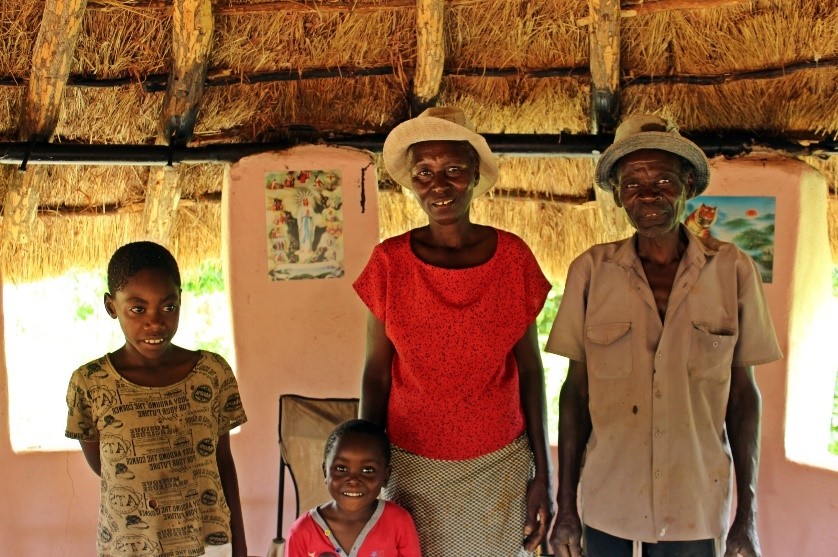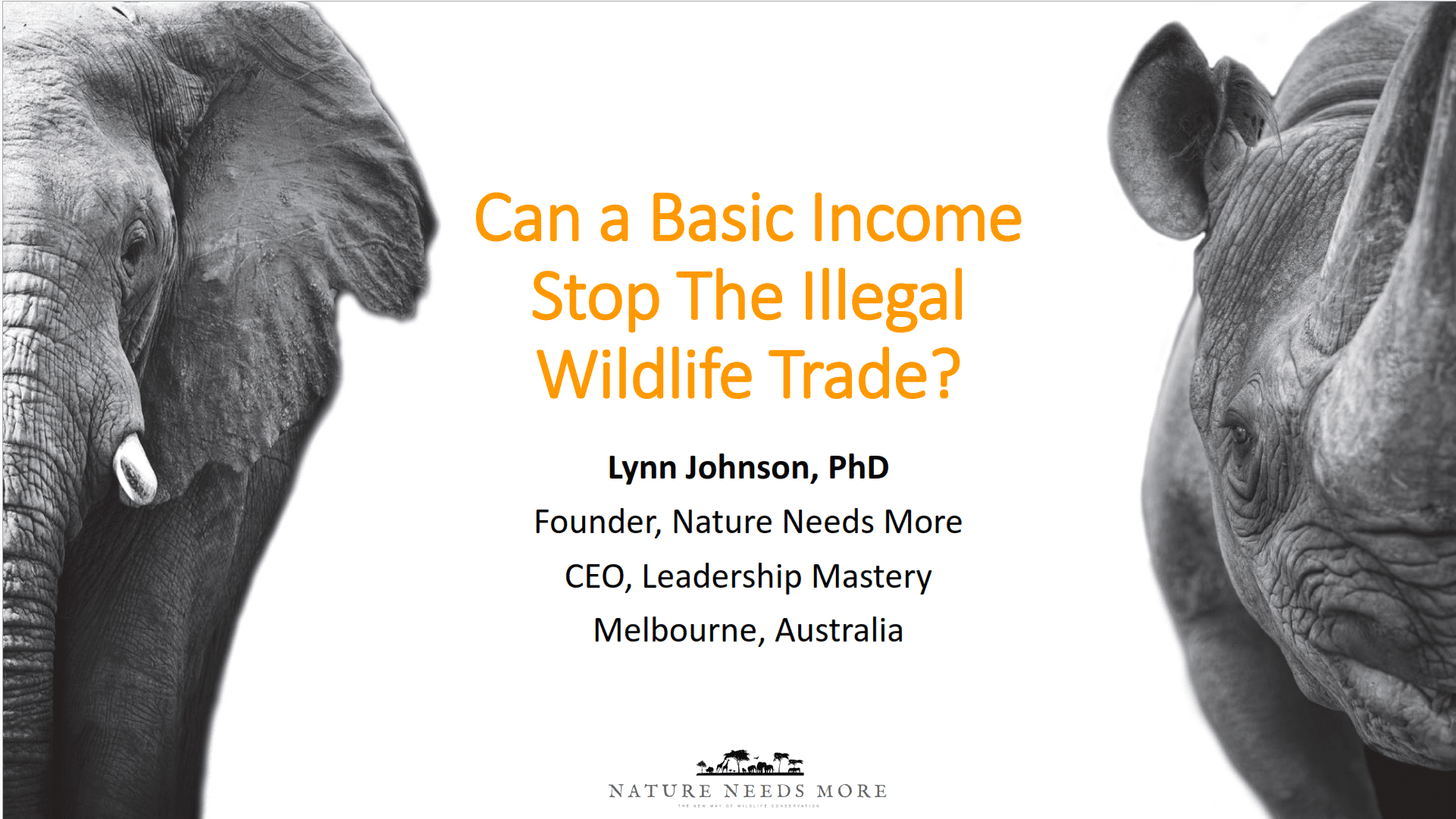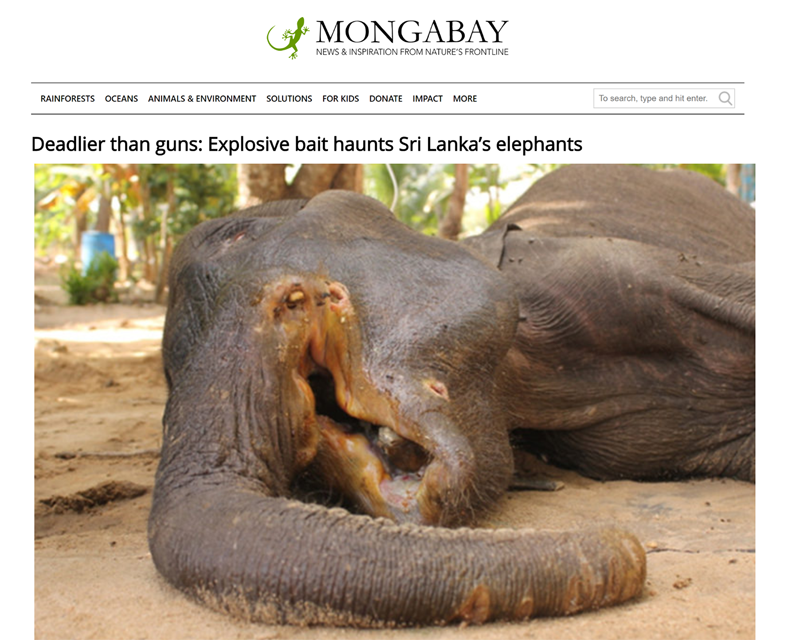BI Linked To Conservation
A Universal Basic Income (UBI) is being explored for a range of reasons and over a number of countries, from the USA to Europe and Japan. Global consulting organisations, such as PwC and McKinsey, are investigating the UBI as a possible response to job loss associated with automation.
 When promoting the basic income model in Switzerland, the basic income movement posed important questions such as:
When promoting the basic income model in Switzerland, the basic income movement posed important questions such as:
“What would you do if your income was taken care of?
For the Nature Needs More team, it would be even more interesting to test this question in a country such as Zimbabwe, which has the highest unemployment rate in the world, at over 90%. In addition, Zimbabwe has high rates of wildlife poaching, from elephants to pangolins for illegal trafficking and many other species are illegally killed for local wild meat consumption.
If the basic income model can be used to overcome food insecurity, survival anxiety and family wellbeing issues in highly stressed populations, living close to conservation areas, can this lead to securing vulnerable populations of animals such as rhinos, elephant and pangolins?
Basic Income trials have been held in Namibia and GiveDirectly has been running a large-scale trial in Kenya. Participants are usually provided with small, monthly cash transfers (via mobile payments) and are given full control over the money.
Today, nearly half the population of sub-Saharan Africa still live on less than $1.90 a day, causing widespread food insecurity and hunger. Absolute poverty rates in sub-Saharan countries in Africa have barely fallen in the last 30 years, despite massive flows in both development aid and resource extraction investment money (from mining, oil, gas).
This persistent absolute poverty in combination with other factors also leads to:
- Poaching and illegal harvesting of wildlife from National Parks and private protected areas.
- Wildlife trafficking syndicates being able to make inroads into impoverished communities to enlist people to poach high value wildlife such as rhinos, elephants and pangolins.
The main issue is often not the lack of money, but the unequal distribution of money. This has not been corrected by the prevalent development aid paradigm, as a large percentage of aid money is typically lost to corruption, spent in the donor country or on ‘overheads’.
A different aid paradigm is now under active consideration using the Basic Income model. This massively reduces overhead expenses and prevents corruption. It also gives agency to those normally excluded from decision making, especially to women.
Whilst most Basic Income trials have and continue to focus on poverty alleviation, the emancipation of women, health and education outcomes, we want to demonstrate that increasing food security, social justice and economic activity observed in other trials in Africa and India will, in addition, directly lead to a reduction in poaching and illegal harvesting and hence protect precious wildlife.
These are the questions Nature Needs More is exploring with our proposed Basic Income trial linked to conservation.
Nature Needs more was invited to present these ideas at the 17th Basic Income Earth Network Congress in Lisbon on September 25, 2017.
Zimbabwe: BI Trial Linked To Conservation
The Nature Needs More team investigated the feasibility of running a 2-year Basic Income trial in Zimbabwe. After presenting our concept at the 2017 Basic Income Congress in Lisbon and we undertook a field trip in Zimbabwe in November 2017 to discuss the design and location for such a trial with a number of stakeholders. The findings from this trip were incorporated into our BI Trial Proposal .
 We want to demonstrate that increasing food security and economic activity will, in addition, directly lead to a reduction in poaching and illegal harvesting and hence protect precious wildlife. We believe that alleviating survival anxiety would make it much harder for traffickers to infiltrate and recruit poachers from local communities.
We want to demonstrate that increasing food security and economic activity will, in addition, directly lead to a reduction in poaching and illegal harvesting and hence protect precious wildlife. We believe that alleviating survival anxiety would make it much harder for traffickers to infiltrate and recruit poachers from local communities.
There was evidence that this could be the case in a 2009 Namibian basic income trial. Whilst the trial was not linked to conservation, they did see a great reduction in illegal hunting (see graph).
The aim of the model Nature Needs More has developed for a basic income trial is to enable a number of interlinked objectives to be achieved, which could change both the current perceived need and individual motivation for poaching. The main benefits in relation to reducing poaching and illegal harvesting are:
- Increased food security and cash availability reduces economic insecurity and survival anxiety
- Paying a guaranteed income to all people in a community increases social justice and cohesion
- Linking the basic income to the presence of conservation areas nearby shows that conservation can benefit surrounding communities
- Providing an income to women increases their status and influence and women are usually opposed to poaching
- Providing a guaranteed income to a whole community enables and vastly expands local economic activity, which will reduce the incentives to engage in poaching
- A basic income increases family wellbeing, health and education outcomes for children

The aim is to follow the proven GiveDirectly model of enrollment and distributing cash via mobile payments. We will partner with a research institution to collect the baseline data and for the evaluation of the trial. We will explore a partnership with GiveDirectly to run all the practical aspects of the trial (enrollments, payments, support, fieldwork).
To help finance the trial, Nature Needs More created the Global First 5,000 campaign, asking 5,000 people worldwide to make a 2-year commitment of US$1,000 per year (or US$85 per month). Given the political situation deteriorated in Zimbabwe during 2018, this project was put on hold and no further funds collected. Nature Needs More is happy to share our research and model for a basic income linked to conservation with anyone interested in running a trial in other countries of continental Africa or elsewhere in the world.
Sri Lanka: BI To Minimise Elephant-Human Conflict
After decades of civil war and unrest Sri Lanka has seen rapid development in the last ten years. The country has continually built its brand worldwide as a top tourist destination, with ecotourism being significant part of the overall strategy.
Ecotourism is highly susceptible to brand and reputation issues, especially in relation to managing iconic species. South Africa realised the country’s brand was being seriously tarnished as the world became exposed to the captive breeding of lions, an industry created to produce a steady supply of lion cubs for petting, walking safaris and ultimately for a fly-in-fly-out canned hunting experience.
Just as canned hunting has tarnished South Africa’s brand, Sri Lanka is becoming aware of the implications of the treatment of its wildlife and maybe the most high-profile issue is that of elephants. The scale of human-elephant conflict in the country is significant. In December 2019 Sri Lanka’s Wildlife Department confirmed that by mid-December, 360 elephants and 100 people had been killed in the longstanding human-elephant conflict in the country. Official records show the population of wild elephants in Sri Lanka is estimated to be 7,500 and as a result 360 elephant deaths constitutes nearly 5% of the wild elephant population being killed in 2019.
As with many countries that develop rapidly, not all regions participate in the growing prosperity at the same pace and while Sri Lanka has modern cities and luxury tourist resorts, there are also impoverished rural communities reliant on subsistence agriculture and small farmers are battling elephants and monkeys to save their crops.
The Sri Lankan government has warned that strict legal action will be taken with anyone who is caught entering elephant habitats with an aim of harming the elephants and has restricted the areas to trained officials. But strong laws alone are not enough to protect elephants if the elephants threaten the survival of subsistence farmers. Survival anxiety is a powerful motivator to take actions that override legal, moral or religious concerns.
Paying farmers a basic income would alleviate survival anxiety and make it much easier to get them on board for measures that significantly reduce or eliminate human-elephant conflict. This is a much better option than paying for crop losses or human deaths or injuries. It creates a level playing field and can be linked to farmers looking after elephants and their habitat in conjunction with implementing measures to dissuade elephants from raiding crops or entering villages.
Australia: BI To Mitigate Climate Change

In Australia, it will be impossible to deal with climate change until the country is willing to not only move away from fossil fuels (use and mining) but also rethink land use for farming and forestry. In a September 2019 interview with sustainability expert Michael Mobbs, he remarked his travels around the Australia, driving through days of abandoned and dying county.
You only have to take a trip in to the NSW hinterland to see abandoned land so degraded over the last two centuries of agricultural production that it has just been left. These areas will never regenerate rapidly enough without some help. And now we have the additional destruction of more than 10 million hectares (an area the size of South Korea) so far this fires season.
 Australia has historically favoured to set aside most of its land mass for grazing animals, currently around 70 million sheep and 15 million cattle. Large tracts of this land are actually ill-suited to grazing, it is too dry and the soil is too fragile for European ungulates, resulting in land degradation, the regional extinction of native flora and fauna and in hardship for farmers trying to make a living from the land.
Australia has historically favoured to set aside most of its land mass for grazing animals, currently around 70 million sheep and 15 million cattle. Large tracts of this land are actually ill-suited to grazing, it is too dry and the soil is too fragile for European ungulates, resulting in land degradation, the regional extinction of native flora and fauna and in hardship for farmers trying to make a living from the land.
With advancing global warming this situation is going to get worse, putting more pressure on the land and more pressure on often heavily indebted farmers. Whilst the Australian government regularly provides drought assistance to farmers in the worst affected areas, this does not solve the underlying problem – too many farmers financially lack the ability to walk away from marginal farming areas and many want to stay connected to the land they love anyway. The same is true for forestry communities.
The solution is to enable farmers to stay on the land and give them the means to forgo grazing or crop growing on marginal land, and not logging any more old growth forest, for forestry communities. This can be done via the ongoing provision of an unconditional basic income, augmented with additional payments to work on land restoration, planting trees, minimising water loss, fostering the growth of native shrubs and grasses and repairing damage done over the last 230 years.



